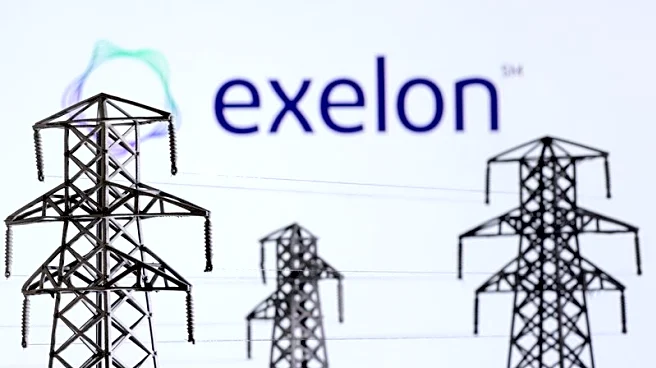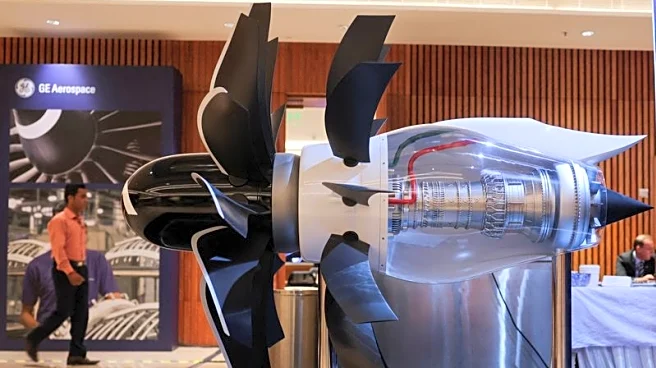What's Happening?
Taiwan Semiconductor Manufacturing Company (TSMC) has announced a significant increase in its net profit, reporting a 39.1% surge in the last quarter. This growth is attributed to the rising demand for AI technologies, which has bolstered the company's
revenue by 30% year-on-year. TSMC, a major supplier to tech giants like Apple and Nvidia, is expanding its operations by building chip fabrication plants in the United States and Japan. This strategic move aims to mitigate risks associated with China-US trade tensions. The company has committed $100 billion in U.S. investments, including new factories in Arizona, supplementing the $65 billion pledged earlier.
Why It's Important?
TSMC's expansion into the U.S. and Japan is a critical development in the semiconductor industry, particularly as geopolitical tensions continue to affect global trade. By increasing its manufacturing footprint outside Taiwan, TSMC is positioning itself to better serve its U.S. clients and reduce potential tariff impacts. The company's focus on AI chip production aligns with the growing demand for advanced technologies, which is expected to drive sustained revenue growth. This expansion not only strengthens TSMC's market position but also supports the U.S. economy by creating jobs and fostering technological advancements.
What's Next?
Looking ahead, TSMC anticipates continued strong demand for its leading-edge process technologies, projecting fourth-quarter revenue between $32.2 billion and $33.4 billion. The company's strategic investments in the U.S. are likely to enhance its competitive edge and influence future trade policies. As AI technology continues to evolve, TSMC's role as a key supplier will be crucial in shaping the industry's landscape. Stakeholders, including U.S. policymakers and tech companies, will closely monitor TSMC's expansion efforts and their impact on domestic manufacturing capabilities.
Beyond the Headlines
TSMC's expansion raises important questions about the balance of global semiconductor production and the implications for international trade relations. The company's decision to invest heavily in the U.S. reflects broader industry trends towards diversification and risk management. This move could influence other semiconductor firms to reconsider their manufacturing strategies, potentially leading to a shift in global production dynamics. Additionally, TSMC's commitment to sustainable manufacturing practices highlights the growing importance of environmental considerations in tech industry operations.
















